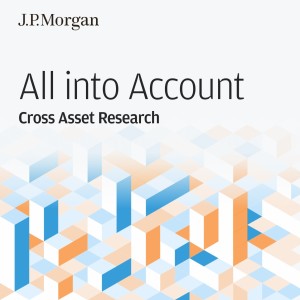
Monday Jun 12, 2023
Equity Strategy: Regional allocation - assessing the relative attractiveness of Japan vs Eurozone
Speaker: Mislav Matejka, CFA, Head of Global Equity Strategy
Out of larger DM exposures, we started the year with constructive calls on both Eurozone and on Japan. Within this, we have last month cut Eurozone, to outright UW. The question is why stay OW Japan then, given that Japan is typically seen as having a similar type of exposure as Eurozone is, a play on global manufacturing cycle with Cyclical Value sector tilts. We believe that Japan will be a better relative value trade than Eurozone in 2H, even against the backdrop of potential weakening in global activity momentum and likely falling bond yields. Apart from delivering a strong run, of 30%+ in USD terms vs the US since September, we have cut Eurozone due to worsening Growth-Policy tradeoff in the region. ECB is likely to stay hawkish given continued pickup in wage growth, but on the other side the best of the recovery in activity seen at the turn of the year is likely behind us. In addition, we believe China will keep stalling in 2H, with hopes of any material stimulus likely ending up unfulfilled. While Japan is a China and global activity play to a large extent, as well, we stay constructive Japan, reiterating the upgrade to OW made in December. Performance-wise, Japan was behind Eurozone until recently, but it is starting to break out, in USD terms as well, and not just in local FX. The reasons that Japan could act differently this time around are: first, a certain disconnect to the global cycle, on the back of the most delayed reopening within DMs, and the YCC control, driving bond yields divergence, and therefore the divergence in borrowing costs. Second, inflation for Japan could be seen as a tailwind, with real wages expected to finally move up, rising asset values and improving pricing power. In a sense, Japan could be a good hedge on inflation risk, in the event inflation turns out to be more problematic than consensus assumes. Third, Japanese equities remain extremely cheap, with the highest proportion of net cash companies, and there is at long last a catalyst for rerating – in the form of TSE initiative. Japanese buybacks are rising.
This podcast was recorded on 11 June 2023.
This communication is provided for information purposes only. Institutional clients can view the related report at http://www.jpmm.com/research/content/GPS-4435627-0 for more information; please visit www.jpmm.com/research/disclosures for important disclosures. © 2022 JPMorgan Chase & Co. All rights reserved.